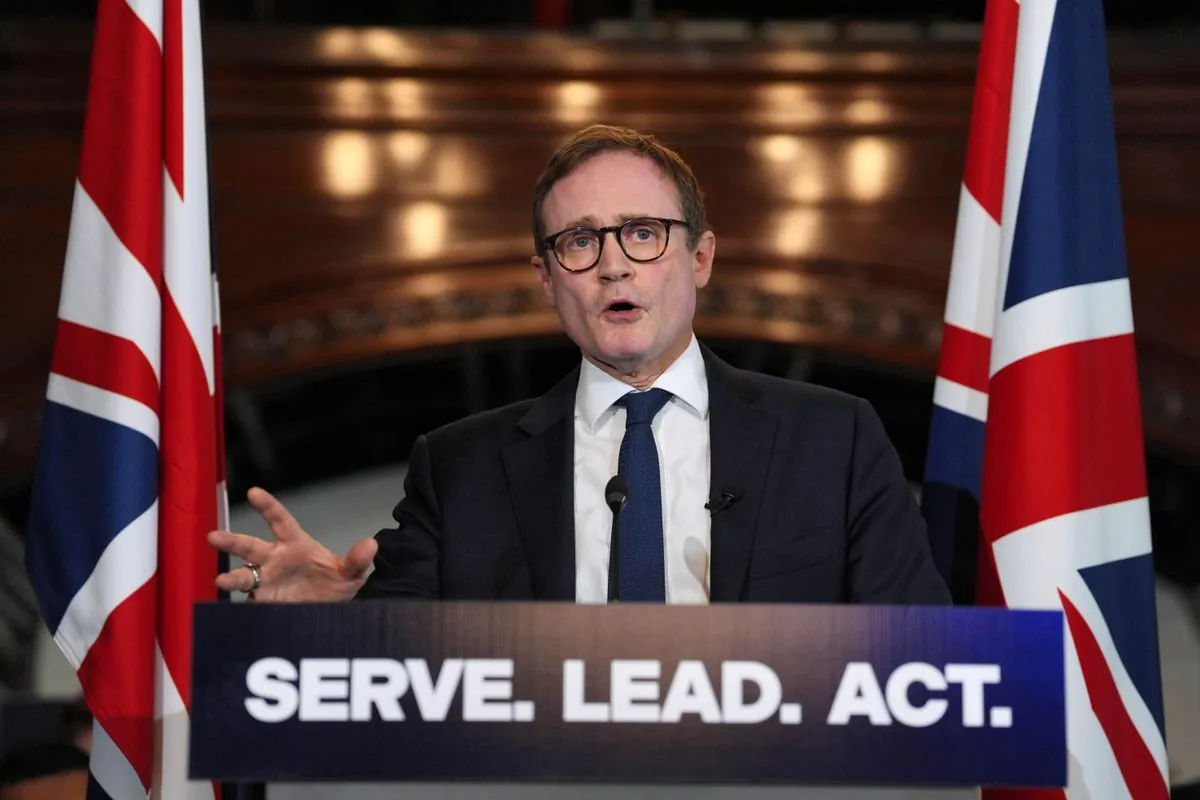Conservative MPs Call for Fresh Leadership After Election Setback
Three newly-elected Conservative MPs reflect on their party's recent electoral defeat and advocate for Tom Tugendhat as the new leader to revitalize the party and challenge Labour in the next election.

In the aftermath of a significant electoral setback for the Conservative Party, three newly-elected Members of Parliament have voiced their concerns and proposed a path forward. Patrick Spencer, Harriet Cross, and Neil Shastri-Hurst, representing constituencies across the United Kingdom, have shared their insights on the party's future direction.
The recent general election resulted in a substantial loss for the Conservatives, with the party retaining only three seats in diverse regions: the north-east coast of Scotland, rural Suffolk, and the West Midlands. This outcome reflects a broader trend of dissatisfaction among traditional Conservative voters, who expressed their discontent at the polls.

The MPs emphasize the need for the party to learn from past mistakes and establish a clear distinction from previous leadership. They argue that the Conservative Party requires not just a new leader, but a comprehensive reform to rebuild public trust and present a compelling alternative to the current Labour government.
"Our party is not only facing a leadership contest, but a leadership crisis. We need a fresh face and true conservative leadership at the helm of our party."
In their assessment, the MPs suggest that while voters were dissatisfied with the party, they remained supportive of conservative policies. This observation underscores the importance of selecting a leader who can effectively communicate and implement these principles.
The article puts forward Tom Tugendhat as the preferred candidate for party leadership. Tugendhat's background includes military service in Afghanistan and Iraq, as well as parliamentary experience focusing on national security issues. His role in passing the National Security Act of 2023 is highlighted as a significant achievement.
The MPs argue that Tugendhat embodies the qualities necessary for effective leadership: dedication to serving the country, adherence to conservative values, and a willingness to take decisive action. They cite his stance against certain government measures, such as the National Insurance rise and vaccine passports, as evidence of his commitment to conservative principles.
According to recent YouGov polls, Tugendhat reportedly holds a slight advantage in favorability ratings compared to Labour leader Keir Starmer, which the authors present as a crucial factor for the party's electoral prospects.
The Conservative Party, one of the UK's main political parties, has held power since 2010. However, the recent election results indicate a shift in public sentiment. The UK's parliamentary system, with its 650 constituencies, presents a complex political landscape that the next Conservative leader must navigate.
As the party faces this critical juncture, the authors conclude that Tugendhat represents the best chance for the Conservatives to regain public trust, implement conservative policies, and effectively challenge the Labour government in the next general election.


































